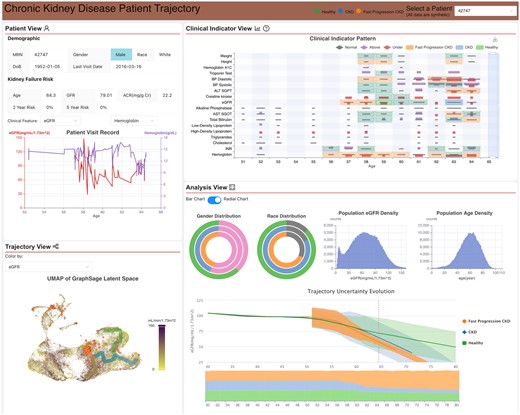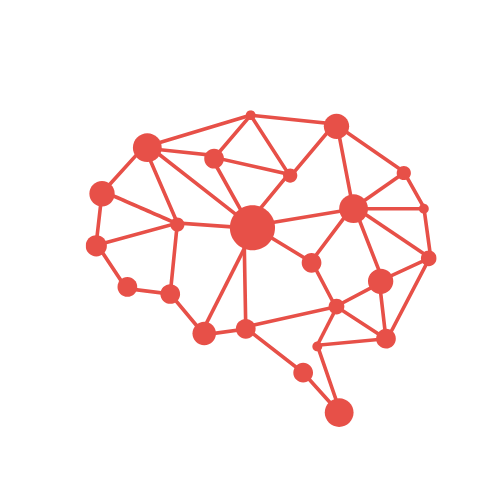AI’s Role in Advancing Disease Identification and Patient Outcomes
- Home
- Insights
- News & Trends
- Enhancing Operational Efficiency in Healthcare: AI's Role in Streamlining Administrative Tasks
Administrative Tasks
News & Trends
Recommended Reads

Data Collection
As the data collection methods have extreme influence over the validity of the research outcomes, it is considered as the crucial aspect of the studies

AI’s Role in Advancing Disease Identification and Patient Outcomes
April 2025 | Source: Becker’s Hospital Review

Innovations in Clinical Decision Support
Artificial Intelligence (AI) has the potential to revolutionize the healthcare process through improvement to Clinical Decision Support Systems (CDSS), which help identify disease sooner and more accurately. The rise of AI in CDSS is paramount in improving patient outcomes and treatment plans. New research and development illustrate the growing role of AI in the clinical environment and what the future holds.

Tests for Early Cancer Detection
- The UK’s NHS is piloting miONCO-Dx, an AI-powered blood test.
- Developed by the University of Southampton and Xgenera.
- Detects 12 common cancers (bowel, lung, breast, prostate, etc.) using AI to analyze microRNA from just 10–15 drops of blood.
- Achieved 99% accuracy in a 20,000-patient study.
- Potential to replace invasive procedures like colonoscopy.


AI in Combating Cancer and Health Disparities
University of Pittsburgh and Leidos: Five-year, $10 million project.
Focus on using AI to combat cancer and heart disease, especially in underserved communities.
Tools from the Computational Pathology and AI Center of Excellence (CPACE) accelerate diagnosis and improve accuracy.

AI in Skin Cancer Diagnosis
Chelsea and Westminster Hospital (UK) uses an AI system for rapid skin cancer diagnosis.
Staff photograph suspicious moles with an iPhone and magnification lens; AI app analyzes the image in seconds.
Nearly half of patients receive instant results, reducing wait times and allowing doctors to focus on more serious cases.

AI in Clinical Workflows
Real-Time Decision Support: AI-powered CDSS give clinicians quick access to the latest research and predictive analytics for diagnosis.
Cognitive Overload Reduction: AI manages complex data, reducing mental fatigue and enhancing diagnostic accuracy.

Ideation and and Bias Mitigation
AI Bias: Risk of demographic bias; requires diverse, representative datasets.
Explainability and Trust: Explainable AI frameworks are essential for building clinician and patient confidence in AI-assisted decisions.

on AI-Driven Clinical Decision Support
- Integrate Statistical Rigor with AI Models: Statistical validation ensures accurate, reproducible clinical decisions.
- Design Research for Real-World Implementation: Consider real-world modeling, cross-validation, and predictive performance.
- Ensure Ethical and Transparent Use of AI: Address bias, explainability, and regulatory compliance throughout model development.
- Bridge AI Outputs with Evidence-Based Practice: Translate AI outputs into clinical evidence using advanced analytics and health economics modeling.

Summary: AI Innovations in Clinical Decision Support
| Early Cancer Detection | AI blood tests detect 12 cancers with 99% accuracy, non-invasively. |
| Combating Health Disparities | AI tools accelerate diagnosis, focus on underserved populations. |
| Skin Cancer Diagnosis | Instant AI analysis reduces wait times and clinician workload. |
| Workflow Integration | Real-time support, cognitive load reduction for clinicians. |
| Ethical & Statistical Considerations | Emphasis on bias mitigation, explainability, and validation. |

Conclusion
AI’s incorporation into CDSS increases the ability to recognize disease patterns earlier, improve accuracy for diagnoses, and ultimately the ability to enhances patient care. Although AI continues to advance, the successful integration of AI in clinical settings will require continued progress and ethically human-assisted and based approaches.
